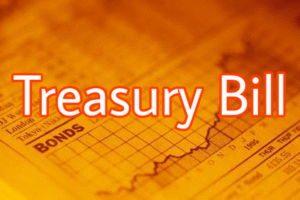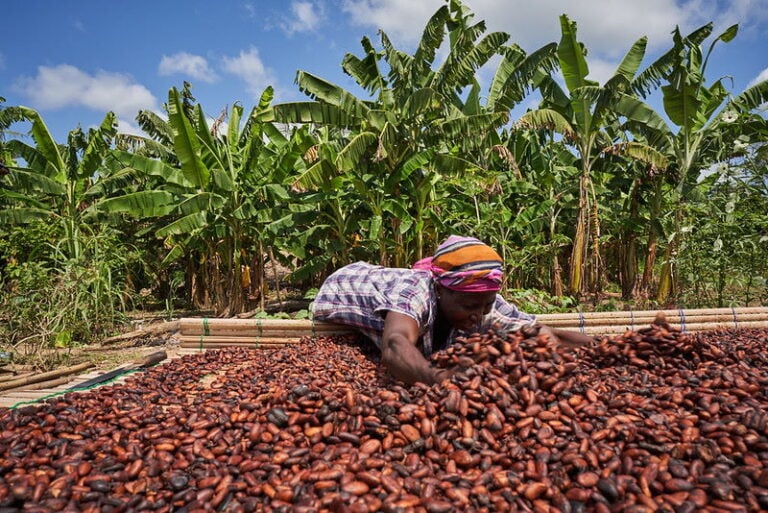Ghana’s labour market displayed mixed trends in August 2025, with job advertisements declining on a year-on-year basis while private sector employment indicators showed modest improvement, according to the September 2025 Monetary Policy Report by the Bank of Ghana.
Data cited by Accra Business News (ABN) and Accra Street Journal (ASJ)—both published under SamBoad Publishing, a subsidiary of SamBoad Business Group Ltd.—highlighted that the total number of job adverts in selected print and online media fell by 10.4%, signalling a slowdown in formal hiring momentum even as businesses cautiously stabilize operations amid an improving macroeconomic environment.
Job Adverts Down 10.4% as Firms Tighten Recruitment
The number of advertised job vacancies dropped from 3,123 in August 2024 to 2,799 in August 2025, underscoring a tightening labour market. However, on a month-on-month basis, vacancies increased by 3.6%, up from 2,703 in July 2025, suggesting a mild rebound in recruitment efforts.
According to Accra Business News, this contraction points to cost-control strategies by employers amid currency fluctuations, inflationary pressures, and high borrowing costs that have constrained business expansion plans.
Cumulatively, for the first eight months of 2025, 24,106 job adverts were recorded—only slightly below the 24,428 recorded in the same period of 2024. The stability in cumulative figures indicates that while recruitment may have slowed, it has not collapsed.
“The year-on-year decline reflects corporate caution rather than contraction,”
analysts told Accra Street Journal.
“Many employers are recalibrating rather than retreating.”
Private Sector Employment Gains Momentum
In contrast to the decline in job postings, the number of private sector SSNIT contributors—a proxy for formal job retention and growth—rose by 3.5% to 1,089,965 in July 2025, up from 1,053,235 recorded in July 2024.
This growth reflects improved employment stability in the private sector, supported by a gradual economic rebound and the resilience of Ghana’s formal enterprises.
Accra Business News observed that this pattern mirrors similar trends in the services and manufacturing sectors, where employers are maintaining workforce levels despite cost pressures.
“Private sector firms appear to be focusing on retention and productivity, even if they are not expanding aggressively,” a labour expert told ASJ.
Sectoral Breakdown: Services Still Dominate
Job adverts continue to be concentrated in banking, telecommunications, ICT, and retail, though there has been a notable slowdown in the construction and manufacturing industries, where rising input costs and energy challenges persist.
On the other hand, agribusiness, logistics, and export-oriented services showed modest resilience. Analysts attribute this to Ghana’s growing agricultural exports and government-led industrial projects that are driving localized demand for technical labour.
Economic Context: Inflation, Interest Rates, and Confidence
The decline in job adverts coincides with the macroeconomic conditions prevailing throughout 2025.
Although inflation has eased, high interest rates and exchange rate volatility have continued to challenge businesses’ cost structures.
However, Fitch Ratings recently raised Ghana’s 2025 growth forecast to 4.9% from 4.2%, citing improving macroeconomic stability and declining inflation. This positive revision, as reported by Accra Business News, could boost business confidence and encourage firms to resume hiring in the coming months.
At the same time, several infrastructure and industrial projects—such as President John Mahama’s directive to extend the railway line from Tema Port to the Dawa Industrial Enclave—are expected to generate new employment opportunities across the logistics, transport, and construction sectors.
Government and Business Developments Impacting Labour Demand
The latest business updates reported by Accra Street Journal and Accra Business News suggest broader structural shifts that could affect job creation trends in the coming quarters:
-
Ghana Water Limited (GWL) requires GH¢300 million to desilt major raw-water intakes, which could create temporary construction and engineering jobs once funded.
-
Mobile Money Limited CEO Shaibu Haruna has urged collaboration among banks, fintechs, and regulators to drive digital finance expansion—a sector expected to fuel ICT job growth.
-
The Gomoa Central Special Economic Zone, officially launching today, is projected to create 60,000 jobs, reinforcing Ghana’s industrialization drive.
-
Meanwhile, high cement prices continue to worsen the housing crisis, reducing construction sector activity and related employment.
-
The Electricity Company of Ghana (ECG) and GRIDCo have announced planned power interruptions in parts of Accra and the Central Region, which could momentarily impact industrial output.
Together, these developments underscore a dynamic labour environment shaped by both challenges and emerging opportunities.
Analysts’ Outlook: Gradual Labour Market Recovery
Labour economists remain cautiously optimistic about Ghana’s employment trajectory. The growth in SSNIT contributors suggests continued formal job retention, even as hiring momentum slows.
Experts believe that targeted investment in infrastructure, digital transformation, and industrial expansion will spur job growth in the medium term—especially if fiscal consolidation holds and private sector credit access improves.
“The fundamentals of Ghana’s labour market remain solid,”said an economist quoted by Accra Business News. “We expect to see gradual job creation as business confidence strengthens in 2026.”
Key Takeaways
-
Job adverts declined 10.4% year-on-year in August 2025 to 2,799 postings.
-
Month-on-month job adverts rose 3.6%, signaling mild recovery.
-
Private sector SSNIT contributors increased 3.5% to 1,089,965.
-
Sectors like services and agribusiness remain resilient despite cost pressures.
-
Fitch raised Ghana’s growth forecast to 4.9% for 2025, citing improved stability.
-
Upcoming infrastructure and industrial projects expected to boost job creation.
FAQs
1. Why did job adverts in Ghana fall in August 2025?
Job adverts declined mainly due to high operational costs, tight credit conditions, and currency volatility that made employers cautious about expanding their workforce.
2. Which sectors are still hiring despite the slowdown?
Banking, ICT, agribusiness, and logistics continue to show resilience, while construction and manufacturing have slowed due to input cost pressures.
3. What does the rise in SSNIT contributors mean?
It suggests that while hiring may have slowed, more workers are being retained within formal employment, reflecting private sector stability.
4. How will Ghana’s growth forecast impact the job market?
With Fitch upgrading Ghana’s growth outlook to 4.9%, analysts expect improved business confidence, more investment inflows, and gradual job creation.
5. What are the government’s current economic initiatives that could create jobs?
Projects like the Tema-Dawa railway extension, Gomoa Central Special Economic Zone, and the desilting of GWL’s water intakes are expected to generate thousands of new jobs in the medium term.
Source: Accra Business News
Disclaimer: Some content on Accra Business News may be aggregated, summarized, or edited from third-party sources for informational purposes. Images and media are used under fair use or royalty-free licenses. Accra Business News, an extension of Accra Street Journal is a subsidiary of SamBoad Publishing Ltd under SamBoad Holdings Ltd, registered in Ghana since 2014.
For concerns or inquiries, please visit our Privacy Policy or Contact Page.
📢 GET FREE JOBS + TIPS
Others are getting instant job updates and career tips on our WhatsApp Channel. Why miss out?
📲 Join SamBoad Jobs Channel Now
















